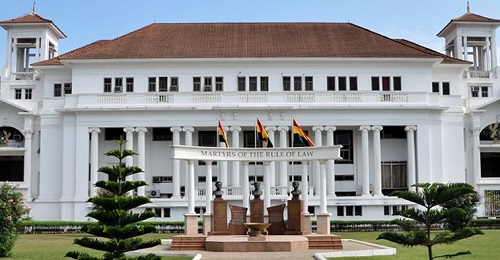The lawsuit brought by Mark Darlington, a private man, contesting the FDA’s ban on celebrities promoting and advertising alcoholic beverages, was dismissed by the Supreme Court.
In its guidelines for food advertisements released on February 1, 2016, the FDA states that “alcoholic beverage advertising shall not feature any well-known personality or professional.”
According to the authorities, the purpose of the rule was to stop minors from developing an alcohol addiction as a result of celebrity influence.
The FDA added that the prohibition was in line with a World Health Organization (WHO) regulation and that it was an effort to keep kids and young adults from falling victim to alcoholism.
In his lawsuit challenging the FDA order, Mark Darlington prayed that the Supreme Court would declare the regulation unlawful on the grounds that it infringed upon the right to discrimination protected by Article 17 of the 1992 Constitution.
However, the claim was dismissed on Wednesday, June 19, by the Supreme Court in a majority decision of 5-2. The FDA’s mandate was deemed by the court to be reasonable and not excessive, and it did not violate any constitutional provisions.
The entire ruling will be accessible on Friday, June 21.
Relief Requested:
(a) A statement stating that Guideline 3.2.10 of the Guidelines for the Advertisement of Foods, published by the First Defendant on February 1, 2016, which states that “No well-known personality or professional shall be used in alcoholic beverage advertising,” is discriminatory, inconsistent with, and in violation of Articles 17(1) and 17(2) of the 1992 Constitution, and therefore unconstitutional, based on a true and proper interpretation of those provisions, which guarantee equality before the law and prohibit discrimination against persons on the basis of social or economic status, among other factors.
(b) A declaration that, in accordance with a true and correct interpretation of Articles 17(1) and 17(2), Guideline 3.2.10 of the Guidelines for the Advertisement of Foods, which was released by the First Defendant on February 1, 2016, is unconstitutional and violates Articles 17(1) and 17(2) of the 1992 Constitution, which uphold equality before the law and forbid discrimination against individuals based on their social or economic status, among other reasons, and is, therefore, null, void, and unenforceable.
(c) An order declaring null and void Guideline 3.2.10 of the Guidelines for the Advertisement of Foods, which was released by the first defendant on February 1, 2016, on the grounds that it is against the letter and spirit of the 1992 Constitution.
(d) A permanent injunction prohibiting the defendants, their representatives, employees, or assigns from taking any action that would hinder a well-known individual or professional from endorsing alcohol under the guise of complying with Guideline 3.2.10 of the Guidelines for the Advertisement of Foods, which was released by the first defendant on February 1, 2016.





